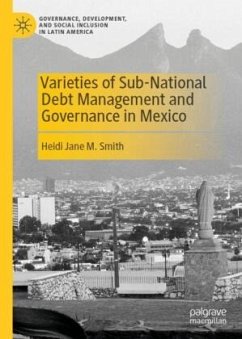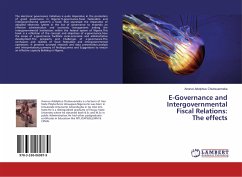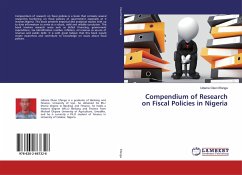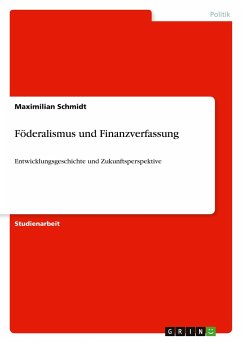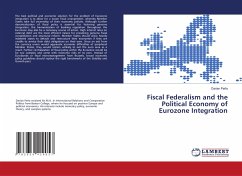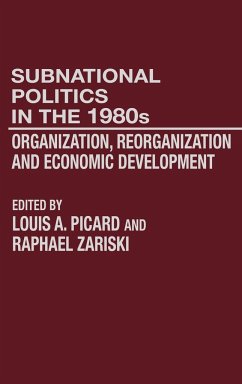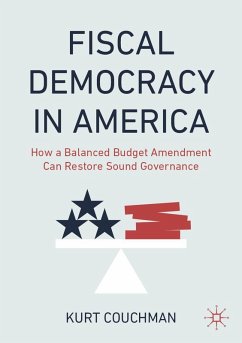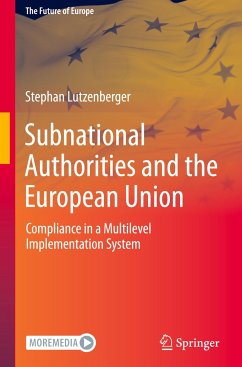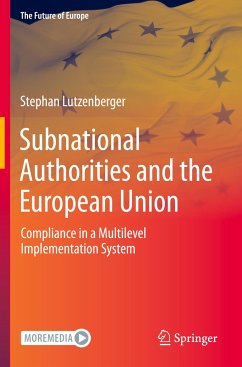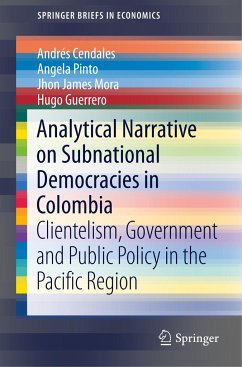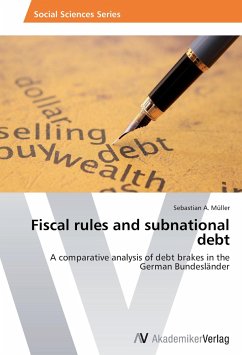
Fiscal rules and subnational debt
A comparative analysis of debt brakes in the German Bundesländer
Versandkostenfrei!
Versandfertig in 6-10 Tagen
16,99 €
inkl. MwSt.

PAYBACK Punkte
8 °P sammeln!
Subnational debt has long been recognized as a threat to the national fiscal balance. Federalist countries, such as Germany, where subnational entities have considerable autonomy, have long focused their efforts on constraining their fiscal deficits. In Germany a continued bargaining process between the federal state and the Bundesländer has resulted in a constitutional amendment (Föderalismusreform II) that mandates the Bundesländer to have balanced budgets from 2020 onwards, leaving open how the objective can be reached. In order to meet the target both the federal government and several ...
Subnational debt has long been recognized as a threat to the national fiscal balance. Federalist countries, such as Germany, where subnational entities have considerable autonomy, have long focused their efforts on constraining their fiscal deficits. In Germany a continued bargaining process between the federal state and the Bundesländer has resulted in a constitutional amendment (Föderalismusreform II) that mandates the Bundesländer to have balanced budgets from 2020 onwards, leaving open how the objective can be reached. In order to meet the target both the federal government and several Bundesländer have introduced debt brakes that are to serve as fiscal rules. Ten Bundesländer that have already introduced such rules have decided to design them in a different way. In light of this a question arises: How do debt brakes in different Bundesländer compare to each other? The book explores this question and starts by analyzing whether such rules can be effective at all. The main finding is that key elements of fiscal rules still do not protect public budgets from further deficits. Generally, the complexity of debt brakes and the imperfections of their design generate a feeling that the reform process is far from being completed. The book identifies and analyzes heterogenous approaches to debt brakes in the Bundesländer and is thus relevant for both practitioners and academics.



